
Celebrating the profound compositional legacy of Julius Hemphill through inventive string adaptations of his saxophone quartet and sextet works, violinists Curtis Stewart and Sam Bardfeld, violist Stephanie Griffin, and cellist Tomeka Reid channel Abdul Wadud's expressive spirit, transforming Hemphill's blues-inflected jazz into vividly textured chamber improvisations with lyrical intensity.
In Stock
Quantity in Basket: None
Log In to use our Wish List
Shipping Weight: 3.00 units
EU & UK Customers:
Discogs.com can handle your VAT payments
So please order through Discogs
Sample The Album:
Julius Hemphill-composer
Curtis Stewart-violin
Sam Bardfeld-violin
Stephanie Griffin-viola
Tomeka Reid-cello
Click an artist name above to see in-stock items for that artist.
UPC: 806102129553
Label: Out Of Your Head Records
Catalog ID: OOYH 035
Squidco Product Code: 36053
Format: CD
Condition: New
Released: 2025
Country: USA
Packaging: Cardboard Gatefold
Recorded at Oktaven Audio, by Ryan Streber.
"Think of the music of Julius Hemphill (1938Š1995), most likely your first thought is of saxophones. He played a few, and his dry, indelible alto sound in particular spoke of the savannah and the blues belt. And he was primary composer and conceptualist for the vastly influential World Saxophone Quartet, starting in 1977, before leading the Julius Hemphill Saxophone Sextet from 1989.
Still, when I think of Hemphill, the first sound that comes to mind is of four bowed strings: his frequent partner Abdul Wadud grinding away on cello on 1972's unforgettable Dogon A.D. There had been cellos in jazz before, but Hemphill and Wadud made it sound like a blues guitar struck with a bow. Their bond was deep, and they'd reconvene periodically throughout their performing careers. Wadud, known to classical audiences as Ronald DeVaughn, would also record with new music dynamos Frank Lowe, Arthur Blythe, Anthony Davis and James Newton. He's influenced dozens of improvising cellists to come, his champion Tomeka Reid conspicuous among them.
Tomeka Reid:
"Abdul Wadud, what can I say? A total giant and a deep voice in this music. (And the synergy between him and Hemphill was indeed magical.) His technique was impeccable, with the bow or pizzicato: You could hear the whole history of the music in his playing and he could weave in and out of styles effortlessly." In that respect he's a perfect role model for Reid and her fellow interpreters of Hemphill's blues-infused chamber music here.
Sam Bardfeld:
"The quartetÕs origin was a little serendipitous. I ran into Marty Ehrlich at a gig in Brooklyn and he told me that he had just published the World Saxophone Quartet music in an edition for strings and suggested I play them. I touched base with TomekaŃshe and I were both huge Hemphill fans alreadyŃwho said Peter Margasak had just asked her to put together a group to play Mingus Gold at Chicago's 2022 Frequency Festival. We agreed to ask Curtis and Stephanie to join us. Besides being great improvisers, each co-leads a string quartet that deals extensively with contemporary classical musicŃCurtis with the Publiq Quartet and Stephanie with the Momenta Quartet. We all enjoyed playing together and playing this music so we kept going."
Circa 2020, Marty EhrlichŃlongtime Hemphill friend, sideman, aide and now archivistŃhad been preparing Julius's saxophone music for publication. "Twenty-five years after his death, I was entering these works into the computer, listening back to them in a different way. It became clear that for all their rich idiomatic conception for saxophone choir, those compositions would work just fine for string quartet. And if one goal is to have the compositions of Julius Hemphill performed, string-quartet editions would open up a wider world."
For that "rich idiomatic conception," hear WSQ's 1980 take of "Revue," specifically the succession of slow chords starting around 1:20, and the idiosyncratic jostle of four distinctly individual reed voices. (The Ellington model: a sax section of individualists.) Now listen to the Stringtet play that same section, blending as string players are wont to do. The wild unpruned chords are now more orderly, more composerly, as four lines (say) move in parallel fourths, or outline a sturdy dominant seventh chord. The latter sets up the next section of "Revue," where the score invites players to improvise over the tuneÕs anchoring cello vamp and its two-chord feelŃan open episode announced by ceiling-scrape high violin harmonics. That launches a collective improvisation from which each member briefly emerges for a short solo.
Whatever else they do, HemphillÕs quartet pieces are designed to get improvisers moving, and if itÕs expedient to skip a section, so be it. ThereÕs collective improvising on each Hemphill composition here. "Choo Choo," with its click-clack undercarriage, was an early (if unrecorded) composition for WSQ, its echoic title echoing Duke EllingtonÕs first train song, a 1924 novelty. (No resemblance. The posthumous Hemphill Saxophone Sextet recorded "Choo Choo" in 1997 for the album At Dr. KingÕs Table.) The tone poem "My First Winter" leads (via improvised transition) to the vampy dance "Touchic," linked here just as they appeared back to back on WSQÕs Live in Zurich. Curtis Stewart takes the gorgeous wintry melody statement on the former, raising the bar for fellow violinist Sam BardfeldÕs follow-up. Violist Stephanie Griffin takes a particularly lyrical improvisation under wispy high harmonics and over a cello ostinato on "Touchic."
Adapting saxophone quartet music to his Sextet, Hemphill might double a couple of parts at a higher or lower octave to fatten the texture. Editing the music for strings, Marty Ehrlich wisely forbore adding fortifying double-stops to HemphillÕs meticulous four-part voicings. The players thicken things up on their own, taking it from there.
But here we also have HemphillÕs own richly idiomatic writing for jazz-inflected string quartet: his 1988 settings of three 1959 compositions by Charles Mingus, who like Hemphill valued propulsive riffs, romantic harmony with blues extensions, music built in layers, and the occasional languid tempo. The suite Mingus Gold was commissioned but not recorded by Kronos. (A 2007 live version by the Daedalus Quartet is in the JH archival box The Boyˇ Multi-National Crusade for Harmony.) ThereÕs some four-part writing in the suite, but double-stops abound. "Nostalgia in Times Square" is played as written. On "Alice," the score calls for an "ad lib cadenza in D-flat" from cello, following a flashy pizzicato line to put the player in the mood and to draw the listenerÕs attention celloward. Reid repays the composerÕs courtesy.
"Better Git Hit in Your Soul" is the most familiar of these Mingus melodies, and treated most familiarly by the Stringtet; the score even renders the title as "Betta Git It in Yo Sole." In that spirit, violins start embellishing on the first repeat, itching to get to their "duo-solo" as some call it: a dual improvisation over plucked viola and cello locked together playing (scored) chunky chords below, a handsome effect. MingusÕs tempo modulations between sections are observed. Mingus references in the pizzicato cello parts are unmistakable. The infectious bowed riff that cello breaks out around 5:35 is MingusÕs, but it plays like pure Abdul Wadud.
Give Marty Ehrlich the last word:
"IÕve always made the point that this rich body of work can be played by non-improvising sax or string groups in a suite form, or by improvising groups that can extend the works as Julius did with WSQ and the Julius Hemphill Saxophone Sextet. ItÕs wonderful that Tomeka and Sam and Curtis and Stephanie have done all of that."
Ń Kevin Whitehead, from the liner notes
Artist Biographies
• Show Bio for Julius Hemphill "Julius Arthur Hemphill (January 24, 1938 - April 2, 1995) was a jazz composer and saxophone player. He performed mainly on alto saxophone, less often on soprano and tenor saxophones and flute. Hemphill was born in Fort Worth, Texas, and attended I.M. Terrell High School (as did Ornette Coleman). He studied the clarinet with John Carter, another I.M. Terrell alumnus, before learning saxophone. Gerry Mulligan was an early influence. Hemphill joined the United States Army in 1964, and served for several years, and later performed with Ike Turner for a brief period. In 1968, Hemphill moved to St. Louis, Missouri, and co-founded the Black Artists' Group (BAG), a multidisciplinary arts collective that brought him into contact with artists such as saxophonists Oliver Lake and Hamiet Bluiett, trumpeters Baikida Carroll and Floyd LeFlore, and writer/director Malinke Robert Elliott. Hemphill moved to New York City in the mid-1970s, and was active in the then-thriving free jazz community. He gave saxophone lessons to a number of musicians, including David Sanborn and Tim Berne. Hemphill was probably best known as the founder of the World Saxophone Quartet, a group he formed in 1976, after collaborating with Anthony Braxton in several saxophone-only ensembles. Hemphill left the World Saxophone Quartet in the early 1990s, and formed a saxophone quintet. Hemphill recorded over twenty albums as a leader, about ten records with the World Saxophone Quartet and recorded or performed with Björk, Bill Frisell, Anthony Braxton and others. Late in his life, ill-health (including diabetes and heart surgery) forced Hemphill to stop playing saxophone, but he continued writing music until his death in New York City. His saxophone sextet, led by Marty Ehrlich, also released several albums of Hemphill's music, but without Hemphill playing. The most recent is entitled The Hard Blues, recorded live in Lisbon after Hemphill's death. A source of information on Hemphill's life and music is a multi-hour oral history interview that he conducted for the Smithsonian Institution in March and April 1994, and which is held at the Archives Center of the National Museum of American History in Washington, D.C." ^ Hide Bio for Julius Hemphill • Show Bio for Curtis Stewart "Praised for "combining omnivory and brilliance" (The New York Times), six-time GRAMMY® Award-nominated violinist and composer Curtis Stewart translates stories of American self-determination to the concert stage. Tearing down the facade of "classical violinist," Stewart is in constant pursuit of his musical authenticity, treating art as a battery for realizing citizenship. As a solo violinist, composer, Artistic Director of the American Composers Orchestra, professor at The Juilliard School, and member of award-winning ensembles PUBLIQuartet and The Mighty Third Rail, he realizes a vision to find personal and powerful connections between styles, cultures and musics. He was awarded a 2025 Sphinx Medal of Excellence, in recognition of extraordinary leaders in the classical music field who are transforming lives while addressing systemic obstacles within Black and Latino communities. In the 2024-2025 season, Curtis Stewart's compositions will be featured on tour nationwide by the Sphinx Virtuosi as its Composer-in-Residence, including the world premiere of Drill co-commissioned by Carnegie Hall; by the Atlanta Symphony Orchestra, performing his The Famous People; his Embrace, performed by commissioners, the American Composers Orchestra, as part of New Virtuoso: Borders at Carnegie Hall; and by violin and cello duo Catherine Cho and Amy Sue Barston in a new work commissioned by Juilliard Prep. Stewart appears in performance at the Music in the Morning series in Vancouver; performing his program, The American Recital, at Princeton University alongside masterclasses with students; in Bernstein's Serenade with the Maryland Symphony Orchestra; and with Mak Grgic at the St. Louis Classical Guitar concert season. He holds residencies at Boston University Tanglewood Institute, Cleveland Institute of Music, and serves as Resident Artist at Kaufman Music Center, during which he will perform in the world premieres of his own American Caprices and Seasons of Change with the Gateways Festival Orchestra at Eastman and The Kaufman Center's Merkin Hall. The world premiere recording of Julia Perry's Concerto for Violin and Orchestra with the Experiential Orchestra on Bright Shiny Things was nominated for a 2025 GRAMMY Award for Best Classical Instrumental Solo. As a soloist, Curtis Stewart has been presented by Carnegie Hall, Lincoln Center, The Kennedy Center, the Chicago Symphony Orchestra, Cal Performances, Washington Performing Arts, Virginia Arts Festival, The Juilliard School, and the 2022 GRAMMY® Awards, among many others. He has made special appearances with Los Angeles Opera and singer-songwriter Tamar Kali; as curator and guest soloist with Anthony Roth Costanzo and the New York Philharmonic "Bandwagon," touring performance installations from NYC's Whitney Museum, Guggenheim Museum, and Museum of Modern Art; to MTV specials with Wyclef Jean; and sold-out shows at Madison Square Garden with Stevie Wonder, Bruce Springsteen, and Seal. Both Stewart's 2021 album of quarantined song cycles and art videos, Of Power (Bright Shiny Things), and his 2023 album, of Love.-a tribute to his late mother Elektra Kurtis-Stewart-were nominated for GRAMMY® Awards for Best Classical Instrumental Solo. Stewart has been commissioned to compose new solo, chamber, and orchestral works by the Seattle Symphony, Virginia Symphony Orchestra, Phoenix Symphony Orchestra, Carnegie Hall's Play/USA, countertenor Anthony Roth Costanzo and members of the New York Philharmonic, The Knights, La Jolla Music Society, Sybarite5, the New York Festival of Song, Newport Classical Festival, the Royal Conservatory of Music, the Eastman Cello Institute, Orlando Philharmonic, Chicago Symphony Orchestra, and more. In 2022, he was named Artistic Director of the American Composers Orchestra, a national organization dedicated to the creation, celebration, performance, and promotion of orchestral music by diverse and innovative American composers. Among his recent commissions, he composed The Famous People, five recompositions of Dvorák's Slavonic Dances, for a premiere by violinist Gil Shaham with the Virginia Symphony in March 2023. Curtis Stewart is a member of award-winning ensembles, PUBLIQuartet (Chamber Music America Visionary award, winner Concert Artist Guild, 2023 GRAMMY® Award Nomination) and The Mighty Third Rail (Best Music, Edinburgh Fringe Festival, Comic Book Theater Festival). PUBLIQuartet's album What Is American (Bright Shiny Things) was nominated for a 2023 GRAMMY® Award. He has held chamber music residencies at the Metropolitan Museum of Art, National Sawdust, and made return appearances at the Newport, Detroit, Vision, NYC Winter Jazz Festivals. Curtis Stewart has worked with many of today's forward-thinking musicians, including Henry Threadgill, SilkRoad Ensemble, Jessie Montgomery, Alicia Hall-Moran and Jason Moran, Mark O'Connor, Julia Bullock, members of the International Contemporary Ensemble, Billy Childs, Alarm Will Sound, Linda Oh, JACK Quartet, members of Snarky Puppy, Don Byron, Matt Wilson, among many others. An enthusiastic educator, Curtis Stewart teaches Chamber Music, Improvised Chamber Music, and "Cultural Equity and Performance Practice" at The Juilliard School; directs the Contemporary Chamber Music program at the Perlman Music Program; served on the board of Concert Artist Guild; conducted several orchestras and opera pit orchestras; and for ten years led all levels of music theory and string orchestra at the LaGuardia High School for Music & Art and Performing Arts in New York City. Stewart was born into a musical family-his father is avant jazz tuba pioneer Bob Stewart and mother Elektra Kurtis, a soulful Greek jazz violinist-who formed the framework of his sound world through daring improvisation, rigorous Western classical training, and conceptual composition." ^ Hide Bio for Curtis Stewart • Show Bio for Sam Bardfeld "Sam Bardfeld is a violinist, composer, arranger and author. He is a member of The Jazz Passengers and a frequent collaborator of Bruce Springsteen's. He has worked as sideman with a long list of jazz, pop, folk and experimental acts including Elvis Costello, John Zorn, Calexico, Anthony Braxton, Henry Butler, Debbie Harry, Steven Bernstein, John Cale, Kris Davis, Savion Glover, The Red Clay Ramblers, Nancy Sinatra, Willie Colon, The String Trio of NY, Hank Roberts, Johnny Pacheco, Dar Williams, and Chuck Prophet among others. Bardfeld's latest recording with pianist Kris Davis and drummer Michael Sarin, The Great Enthusiasms (BJUR, 2017), earned acclaim from top critics including Nate Chinen who called it "brilliantly odd and altogether lovely" (WBGO, 2017); Bill Milkowski, who said "[Sam's playing] combines a touch of Stuff Smith's playfulness with a Charles Ives aesthetic - Four Stars!" (Downbeat, 2017); and LucidCulture "this is the great violin recording Monk never made, one of the 10 best jazz records of the year." His earlier recordings, Taxidermy (CIMP, 1999) and Periodic Trespasses (FreshSounds, 2006) also earned acclaim, including a "4-Star" rating in Downbeat magazine, raves in Jazz Times, Jazziz magazine and "4-Stars" in All Music Guide (both recordings). He has performed with his own group at jazz festivals and clubs throughout Europe including Banlieues Bleues (Paris), Sud-Tirol (Italy) and Porgy and Bess (Vienna). In 2019, Bardfeld was voted #5 in the El Intruso International Jazz Critics Poll in the Violin/Viola category. In addition to being a member of the Jazz Passengers, Sam's jazz playing is featured as a member of Roy Nathanson's Sotto Voce and Joel Harrison's String Choir and he has toured and/or recorded with Michael Attias' Sextet, Royal Hartigan's Blood Drum Spirit, Butler/Bernstein and the Hot 9, Steven Bernstein's MTO, Anthony Braxton's Trillium Orchestra, Ingrid Laubrock's Orchestra, Vince Giordano's Nighthawks and many other groups. Sam's arranging credits include work for Calexico, Nancy Sinatra, film music for Hedwig and the Angry Inch composer Stephen Trask, and work on the Broadway-bound production of Lone Star Love with The Red Clay Ramblers. He has also served as string contractor for Bruce Springsteen and the E Street Band (2009 MSG and 2016 US tour), Gilberto Santa Rosa (Carnegie Hall) and Chuck Prophet (2014 US tour). In the 1990's, Sam's immersion in NYC's fertile Salsa and Latin Jazz scene led to writing a book, Latin Violin (Hal Leonard, 2002), considered to be the authoritative work on the Afro-Cuban violin tradition. He is also an instructor of jazz violin at the New School jazz program in NYC. Sam studied violin technique with Gerald Beal and Joey Corpus, improvisation with Bill Barron, George Garzone and Richie Beirach and counterpoint with Paul Caputo. He graduated from Wesleyan University in 1990 where he studied music, anthropology and history. In 1991 he received a year-long Ford Foundation grant to study ethnomusicology at Wesleyan." ^ Hide Bio for Sam Bardfeld • Show Bio for Stephanie Griffin "Stephanie Griffin is an innovative violist/composer based in New York City. She founded the Momenta Quartet in 2004, is a member of Ensemble Ipse and the Argento Chamber Ensemble, and has received prestigious composition fellowships from the Instituto Sacatar (Brazil), the Bronx Arts Council, the Jerome Foundation and the New York Foundation for the Arts. She holds a doctorate from The Juilliard School and teaches at Brooklyn and Hunter Colleges." ^ Hide Bio for Stephanie Griffin • Show Bio for Tomeka Reid "Chicago based cellist, composer and educator, Tomeka Reid has been described as "a remarkably versatile player," (Howard Reich, Chicago Tribune). Equally adept in classical and jazz contexts, Ms. Reid predominantly finds herself in experimental and improvisatory settings and composes for a wide range of instrumentation, from big band to chamber ensemble. Ms. Reid's music combines her love for groove along with freer concepts. Ms. Reid is an integral part of Dee Alexander's Evolution Ensemble, Nicole Mitchell's Black Earth Ensemble/Strings, Mike Reed's Loose Assembly, the Association for the Advancement of Creative Musicians (AACM) Great Black Music Ensemble, and co-leads the internationally recognized string trio, Hear in Now with performances in Poznan, Poland; Paris, France; Rome, Venice, Milan, Italy; Soazza, Switzerland; and in the US: Chicago, New York and Vermont. In addition to the aforementioned ensembles, Ms. Reid performs with many of today's forward thinking musicians in the world of jazz and creative music including Anthony Braxton, George Lewis, Roscoe Mitchell, Jeb Bishop, Myra Melford, Fred Lonberg-Holm, Mary Halvorson, Denis Fournier, Edward Wilkerson and Harrison Bankhead. Ms. Reid also leads her own trio featuring guitarist Matt Schneider and bassist Josh Abrams, for which she composes. Ms. Reid can be heard on numerous studio recordings. As an educator, Ms. Reid has led string improvisation workshops in Italy and the US. Most recently she co-directed the 2012 Vancouver Jazz Festival’s High School Jazz Intensive. For seven years, Ms. Reid co-directed the string program at the University of Chicago’s Laboratory School for students grade 5 thru 12. Ms. Reid is also an ABD doctoral candidate at the University of Illinois: Urbana-Champaign. As a composer, Ms. Reid has been commissioned by the AACM, the Chicago Jazz Festival and the Chicago Jazz Ensemble and has had several opportunities to showcase her work abroad at festivals such as Umbria Jazz, An Insolent Noise and Vignola Jazz. She has been nominated and awarded residencies for composition with the Ragdale Foundation and the 2nd Annual Make Jazz Fellowship hosted by the 18th Street Arts Organization. Ms. Reid was selected as a 2012 participant in the Jazz Composers Orchestra Institute held at the University of California: Los Angeles." ^ Hide Bio for Tomeka Reid
3/31/2025
Have a better biography or biography source? Please Contact Us so that we can update this biography.
4/1/2025
Have a better biography or biography source? Please Contact Us so that we can update this biography.
4/1/2025
Have a better biography or biography source? Please Contact Us so that we can update this biography.
3/31/2025
Have a better biography or biography source? Please Contact Us so that we can update this biography.
3/31/2025
Have a better biography or biography source? Please Contact Us so that we can update this biography.
Track Listing:
1. Revue 7:45
2. Mingus Gold: Nostalgia in Times Square 4:44
3. Mingus Gold: Alice in Wonderland 7:52
4. Mingus Gold: Better Get Hit in Your Soul 7:32
5. My First Winter/Touchic 12:11
6. Choo Choo 5:47
Improvised Music
Compositional Forms
Chamber Jazz
Jazz & Improvisation Based on Compositions
Stringed Instruments
NY Downtown & Metropolitan Jazz/Improv
New in Improvised Music
New in Compositional Music
Recent Releases and Best Sellers
Search for other titles on the label:
Out Of Your Head Records.


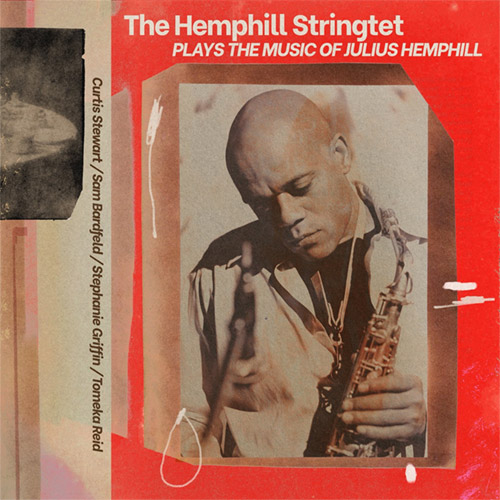
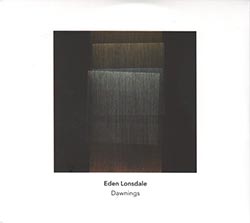


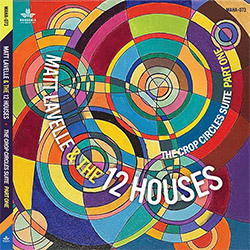

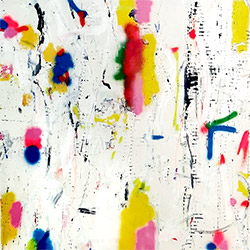
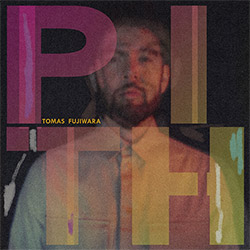



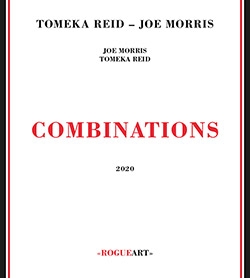
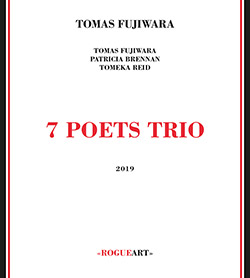

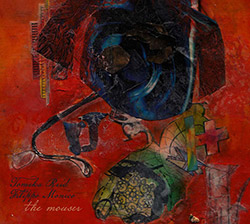


![Rodrigues, Ernesto / Nuno Torres / Guilherme Rodrigues: Whispers In The Moonlight - In Seven Movements [2CDs]](https://www.teuthida.com/productImages/misc4/35765.jpg)


![Cocks, Laura: FATHM [VINYL]](https://www.teuthida.com/productImages/misc4/36055.jpg)










![Ackerley / Prymek / Turner: All Hope With Sleeping Minds [CASSETTE]](https://www.teuthida.com/productImages/misc4/35950.jpg)
![Myers, David Lee : Tin Drop Tear [BOOK w/ DOWNLOAD]](https://www.teuthida.com/productImages/misc4/36030.jpg)



![Schindler, Udo / Sandy Ewen / Damon Smith: Munich Sound Studies Vols. 4, 5 & 6 [3 CDs]](https://www.teuthida.com/productImages/misc4/35966.jpg)






![Turbulence Orchestra & Sub-Units: Smear Out the Difficulties (Double Live) [2 CDs]](https://www.teuthida.com/productImages/misc4/36048.jpg)
![Perelman, Ivo / Tyshawn Sorey: Paralell Aesthetics [2 CDs]](https://www.teuthida.com/productImages/misc4/35871.jpg)


![Sjostrom, Harri: SoundScapes #4 Festival Berlin 2023 [3 CDs]](https://www.teuthida.com/productImages/misc4/35874.jpg)



![Glenn, Jordan: Flustered [CASSETTE]](https://www.teuthida.com/productImages/misc4/35948.jpg)


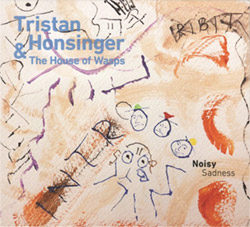
![Lindorff-Ellery, Evan: Church Recordings from Monhegan [CASSETTE]](https://www.teuthida.com/productImages/misc4/35949.jpg)
![Schindler, Udo / Werner Dafeldecker / Gunnar Geisse: Travelling Sound Images - Cognitive Transfers [Trio]](https://www.teuthida.com/productImages/misc4/35767.jpg)

![Egberth, Dennis: The Dennis Egberth Dynasty [VINYL]](https://www.teuthida.com/productImages/misc4/35549.jpg)


![Schindler, Udo / Rieko Okuda / Eric Zwang Eriksson: Disturbed Terrains [2 CDs]](https://www.teuthida.com/productImages/misc4/35330.jpg)






![Olencki, Weston : Pearls Ground Down To Powder [VINYL]](https://www.teuthida.com/productImages/misc4/35956.jpg)
![Myers, David Lee: Oculus [2CDs]](https://www.teuthida.com/productImages/misc4/35857.jpg)


![dustsceawung: dustsceawung [CASSETTE w/ Download]](https://www.teuthida.com/productImages/misc4/35753.jpg)




![Halls of the Machine: Atmospheres For Lovers And Sleepers [CASSETTE w/ DOWNLOAD]](https://www.teuthida.com/productImages/misc4/35806.jpg)



![AHC (Alexander Cooper): Lase [2 CDs]](https://www.teuthida.com/productImages/misc4/35754.jpg)



![Fagaschinski, Kai / Yan Jun : Graveyard Processions [VINYL w/ DOWNLOAD]](https://www.teuthida.com/productImages/misc4/35474.jpg)
![Brant, Cody / Carl Kruger: Smoke Detail [CASSETTE w/ DOWNLOAD]](https://www.teuthida.com/productImages/misc4/35551.jpg)








![Zorn, John / JACK Quartet: The Complete String Quartets [2 CDs]](https://www.teuthida.com/productImages/misc4/35609.jpg)








![Sanna, Claudio: Compositori Sardi Contemporanei II [2 CDs]](https://www.teuthida.com/productImages/misc4/35317.jpg)







![Zurria, Manuel: Fame di Vento [3 CDs]](https://www.teuthida.com/productImages/misc4/35167.jpg)

![Granberg, Magnus / Nattens Inbrott / Skogen: Holde Traume, Kehret Wieder! [2 CDs]](https://www.teuthida.com/productImages/misc4/35038.jpg)

![Electric Bird Noise / Derek Roddy: 8-10-22 [CD EP]](https://www.teuthida.com/productImages/misc4/35970.jpg)








![Elephant9 : Mythical River [VINYL]](https://www.teuthida.com/productImages/misc4/34624.jpg)



![Elephant9 with Terje Rypdal: Catching Fire [VINYL 2 LPs]](https://www.teuthida.com/productImages/misc4/35355.jpg)
![Deerlady (Obomsawin, Mali / Magdalena Abrego): Greatest Hits [VINYL]](https://www.teuthida.com/productImages/misc4/34876.jpg)







![Surplus 1980: Illusion of Consistency [CD]](https://www.teuthida.com/productImages/misc4/35069.jpg)
![Staiano, Moe: Away Towards the Light [VINYL + DOWNLOAD]](https://www.teuthida.com/productImages/misc4/35037.jpg)



![Caveira (Gomes / Sousa / Abras / Ferrandini): Ficar Vivo [VINYL]](https://www.teuthida.com/productImages/misc4/34643.jpg)
![Coley, Byron: Dating Tips for Touring Bands [VINYL]](https://www.teuthida.com/productImages/misc4/17906.jpg)

![Lost Kisses: My Life is Sad & Funny [DVD]](https://www.teuthida.com/productImages/misc4/lostKissesDVD.jpg)